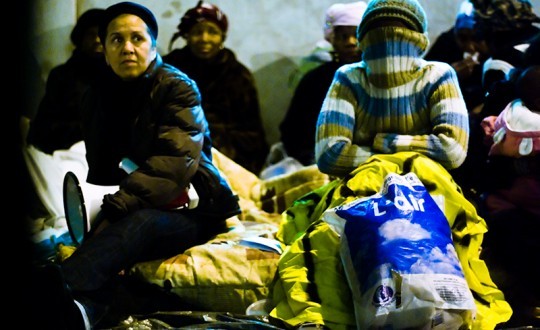Social Tensions

Originally published on www.france-amerique.com on December 4, 2008
Another week dominated by news of social tensions-riots in French Guiana, housing struggles in Paris, and a journalist arrested for libel.
“Room for justice,” ran the headline in Libération this week, in its coverage of a new housing law. The “Dalo law” allows “people who fit the criteria and do not have other possible solutions” to appeal to the administrative tribunal for aid. The new law applies not only to the SDF (sans domicile fixe) population-the homeless, but to households who have requested aid but have not been granted any, those threatened by eviction, who live in temporary housing, or in dangerous or overcrowded locations. However, Libération notes that “those who intend to go to court on this matter are, for the moment, relatively rare.” The law has not yet been highly publicized, and the housing authorities “regret that 600,000 people who qualify may not take advantage of the Dalo law.” According to Le Monde, “from January 1 to the end of October, roughly 50,000 households took advantage of the Dalo law.” And of course, even if people do take advantage of the law, Le Monde observes, “it is unclear whether the courts will be able to accommodate all the demands for aid.”
Distant French Guiana made big headlines this past week in France. According to the website http://www.mediapart.fr/, French Guiana “has fallen into revolution”-and barge workers are leading the charge. The cause: the exorbitant price of gas and oil. “The barge workers have one demand, and one only: they want the price of oil reduced by 50 centimes a liter. The price in French Guiana is currently 1.77 euros a liter, compared with 1.47 euros in Martinique and 99 centimes in France,” Médiapart reports. “In a staggeringly urban country where the market for SUVs and utility vehicles is flourishing, the latest rise in the cost of gas was a slap in the face.” Since November 24, “barges have blocked the main sea routes and have paralyzed French Guiana,” Le Monde reported. The endurance and force of the protest has surprised the government and the French media. According to Libération, the barge workers demands have been “partly heard by the government:” the Secretary of State for France overseas, announced a reduction in the price of oil by 30 centimes, effective December 1.
And finally this week, the violent interrogation and arrest of a journalist in his home provoked the wrath of the French press. The former editor-in-chief of Libération, Vittorio de Filippis, was brutally interrogated November 28 for libel after he published an article discussing the legal problems of the founder of Free, the French internet service, Xavier Niel. “His interrogation was scandalous, and this feeling is shared by citizens and politicians alike,” said the current editor of Libération, Laurent Joffrin. Le Monde took the same tone: “A storm of protest,” was unleashed after Mr. de Filippis was arrested at dawn in his own house, threatened, humiliated, and insulted in front of his young children.” Le Figaro reported on President Sarkozy’s reaction, who “indicated that he understood the turmoil sparked by the arrest.” According to Figaro, the president of the Republic “announced a the implementation of a task force to determine a ‘legal procedure that is more respectful of the rights and dignity of suspects.'” Sarkozy’s statement also served to temper the declaration by his Minister of Justice, Rachida Dato, that the treatment of de Filippis was “completely proper,” and pointing out Mr. de Filippis had ignored earlier subpoenas to appear at court. Across the board, the French press denounced the dangerous tendency of judges to dispatch with editorial freedom. Read more
Share to: Facebook Twitter LinkedIn Email
Leave a reply
Your email address will not be published. Required fields are marked *



